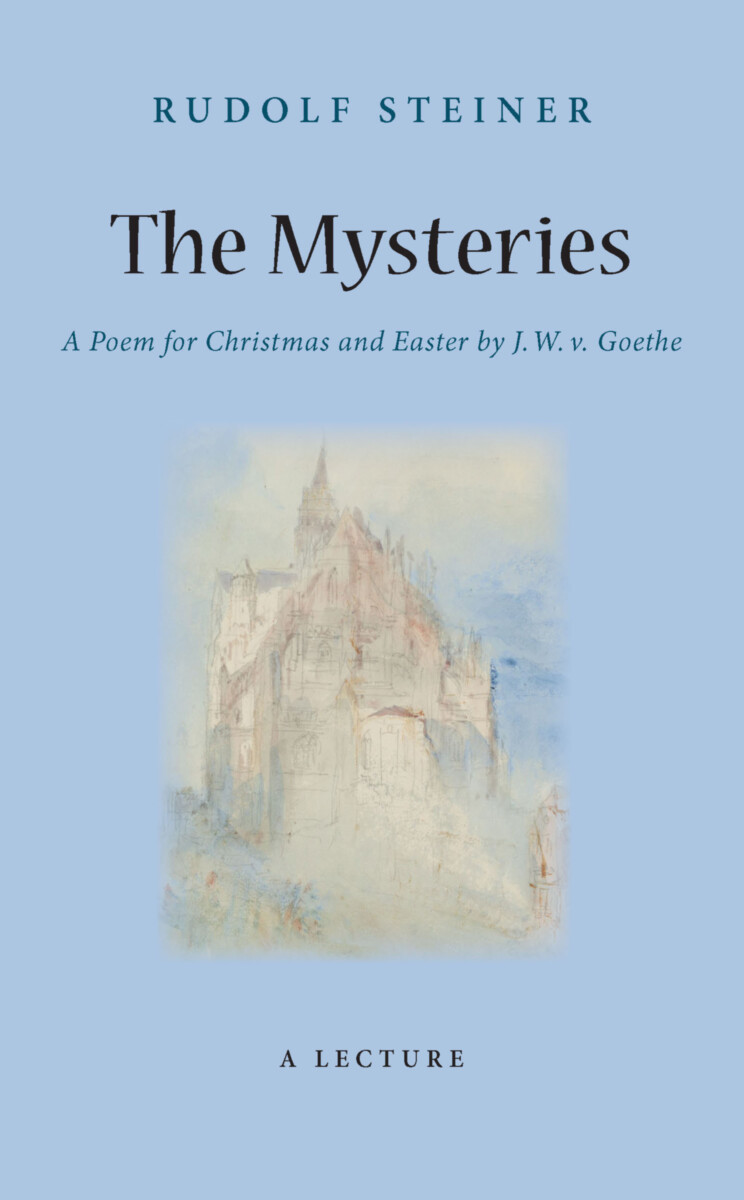The Mysteries
A Poem for Christmas and Easter by W. J. v. Goethe (CW 98)
- Publisher
SteinerBooks - Published
15th May 2014 - ISBN 9781621480808
- Language English
- Pages 44 pp.
- Size 5" x 8"
1 Lecture, Cologne, Dec. 25, 1907 (CW 98)
In this lecture, given on Christmas day, Rudolf Steiner reflects on the deep mysteries of the events surrounding Christ's incarnation, death, and resurrection on Earth. The foundation of his message was the three magi from the East and Goethe's poem “The Mysteries,” told from the perspective of a kind of archetypal pilgrim of esoteric Christianity:
“Here, in Goethe’s poem, we have a wonderful phenomenon. We encounter a person who, in the simplest childlike words, not spoken out of his intellect and formed ideas, imparts to us the highest wisdom, the fruits, of his previous cognitions. He has transformed these cognitions into feelings and sentiments, and has, therefore, been called to lead others who may even have learned more conceptually. Such a pilgrim with a mature soul who has transformed into immediate feeling and sentiment much of what he had collected as knowledge in prior incarnations...such a pilgrim do we have before us in the person of Brother Marcus. As a member of a secret Brotherhood he is sent out with an important mission to another secret Brotherhood....
“Die and be born—overcome what has been given to you originally in your three lower bodies. Kill it off, but don’t kill it to wish death, but to purify what exists in the three bodies, so that you can conquer in the 'I' the power to reach more and more perfection. By killing off what has been given in the three lower bodies, the 'I' gains the power of perfecting. In the 'I' the Christ shall, within the Christ principle, take up the power of perfecting, even into the blood. Even into the blood shall the power be effective.”
This lecture was translated from Natur- und Geisteswesen - ihr Wirken in unserer sichtbaren Welt (CW 98)
Rudolf Steiner
Rudolf Steiner (b. Rudolf Joseph Lorenz Steiner, 1861–1925) was born in the small village of Kraljevec, Austro-Hungarian Empire (now in Croatia), where he grew up. As a young man, he lived in Weimar and Berlin, where he became a well-published scientific, literary, and philosophical scholar, known especially for his work with Goethe’s scientific writings. Steiner termed his spiritual philosophy anthroposophy, meaning “wisdom of the human being.” As an exceptionally developed seer, he based his work on direct knowledge and perception of spiritual dimensions. He initiated a modern, universal “spiritual science” that is accessible to anyone willing to exercise clear and unbiased thinking. From his spiritual investigations, Steiner provided suggestions for the renewal of numerous activities, including education (general and for special needs), agriculture, medicine, economics, architecture, science, philosophy, Christianity, and the arts. There are currently thousands of schools, clinics, farms, and initiatives in other fields that involve practical work based on the principles Steiner developed. His many published works feature his research into the spiritual nature of human beings, the evolution of the world and humanity, and methods for personal development. He wrote some thirty books and delivered more than six thousand lectures throughout much of Europe. In 1924, Steiner founded the General Anthroposophical Society, which today has branches around the world.


